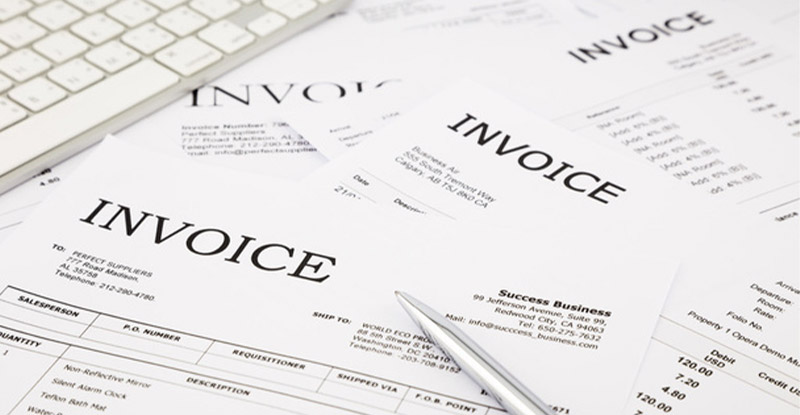Difference Between Proforma Invoice and Commercial Invoice Explained


Understanding the difference between proforma and commercial invoices is crucial for businesses engaged in international trade or any transaction where a clear understanding of costs and terms is required. Both invoices play a significant role in establishing transparency and facilitating smooth transactions across borders.
Navigating the intricate world of international trade can be fraught with unfamiliar terminology and perplexing documents. Among the most frequently encountered, yet often misunderstood, are proforma and commercial invoices.
While they may appear similar at first glance, their purposes, legal implications, and content differ significantly. This article delivers a comprehensive comparison of these documents, equipping you with the knowledge to distinguish between them and handle international transactions with confidence.

Ditch the paper pile and manual madness! Artsyl InvoiceAction automates your proforma and commercial invoice creation, saving you time, reducing errors, and boosting productivity. Start your free trial today and experience the Artsyl difference!
Proforma InvoiceA proforma invoice is a preliminary document sent by the seller to the buyer before the actual shipment of goods or services. It serves as a quotation or an estimate of the expected cost, including the details of the products or services to be provided.
The purpose of a proforma invoice is to give the buyer an idea of the potential expenses and to confirm the terms of the transaction.
From Estimates to Efficiencies: Proforma Made Perfect!
Artsyl OrderAction works in sync with proforma and commercial invoices. Impress clients, secure financing, and streamline your workflow with effortless ease. Stop wasting time on estimates, start wowing with Artsyl! Request a demo today and see the magic in action!
Book a demo now
A commercial invoice, on the other hand, is the official document that is used for recording the actual sale of goods or services. It includes detailed information about the transaction, such as the quantity and description of the items, the agreed-upon price, shipping terms, and payment details. Unlike a proforma invoice, a commercial invoice is a legally binding document, and payment is expected based on the terms outlined.
While a proforma invoice serves as a preliminary estimate or quotation issued before the transaction, a commercial invoice is the official document generated after the completion of the sale.
The proforma invoice helps set expectations, while the commercial invoice finalizes the financial details and serves as a basis for payment and customs clearance.
RELATED: A Guide to Final Invoice: Everything You Need to Know
Understanding the difference between proforma invoices and commercial invoices is crucial for any business dealing in international trade. While they might seem similar at first glance, they serve distinct purposes and have different legal implications. Let’s dive into the key differences:
Proforma Invoice: This is essentially a «pre-invoice» or a quotation. It acts as a preliminary document outlining the estimated cost of goods or services to be provided. Its purpose is to:

Commercial Invoice: This is the official document issued after the sale of goods or services has been agreed upon. It serves as:
Proforma invoice typically includes:
Commercial invoice contains all the information in a proforma invoice, plus:
In addition to the content, the proforma invoice is not legally binding. It’s essentially a proposal that can be revised before the transaction occurs. However, commercial invoice is a legally binding document serving as proof of sale and forming the basis for payment and potential legal disputes.
Most important is the timing when the invoices are issued. Proforma invoice is issued before the goods are shipped or the service is rendered. Commercial Invoice is issued after the goods have been shipped or the service has been rendered.
Last but not least, proforma invoices can be turned into commercial invoices once the terms of the sale are finalized. While not legally binding, proforma invoices are important business documents and should be treated with care and accuracy. Understanding these key differences will help you navigate international trade with confidence and ensure smooth transactions.
Sell Smarter, Pay on Autopilot!
ArtsylPay automates payment data entry, calculates taxes, and makes online payments instantly. Get paid faster, reduce errors, and focus on what matters – growing your business. Stop chasing payments, start chasing success with Artsyl!
Book a demo now
Let’s explore real-life examples of using both proforma invoices and commercial invoices:
Imagine a scenario where a company, XYZ Electronics, is in negotiations with a potential international client, ABC Retailers, to supply a bulk order of electronic gadgets. Before finalizing the deal and shipping the products, XYZ Electronics may issue a proforma invoice to ABC Retailers.
This proforma invoice would outline the estimated costs, including the unit prices of the gadgets, any applicable taxes, and shipping fees. It serves as a preview of the potential transaction, helping ABC Retailers understand the financial aspects before committing to the purchase.
After the terms have been agreed upon, and the electronic gadgets have been shipped to ABC Retailers, XYZ Electronics will then issue a commercial invoice. This official document will include precise details of the transaction, such as the actual quantity and description of the gadgets delivered, the final agreed-upon prices, shipping details, and any applicable taxes or customs duties.
ABC Retailers will use this commercial invoice for accounting purposes and may be required to present it for customs clearance when the goods arrive at their destination.
RELATED: What is an Invoice, and Why Is It Important for Businesses?
These examples illustrate how both types of invoices play distinct roles in different stages of a business transaction, providing clarity, transparency, and legal validity to the overall process.
Accuracy Meets Automation: Eliminate Invoice Errors!
Tired of manual calculations and data entry mistakes? Artsyl InvoiceAction automates everything, from proformas to commercial invoices, ensuring flawless accuracy and saving you headaches. Stop stressing over errors, start celebrating peace of mind with Artsyl! Get your free consultation and discover invoice harmony!
Book a demo now
The term «proforma» means «as a matter of form.» A proforma invoice is a preliminary document issued by a seller to a buyer before a transaction is finalized. It outlines the terms of the sale, including estimated costs, product descriptions, and other details. A proforma invoice provides an estimated cost of goods or services. It is not a legally binding document but serves as a tool for the buyer to understand potential expenses.
A proforma invoice for export is a preliminary document provided by a seller to a buyer in international trade transactions. It outlines the details of the proposed export transaction, including the description and quantity of goods, their value, and terms of the sale. This document serves as a prelude to the actual commercial transaction, providing the buyer with essential information before finalizing the export arrangement.
A proforma invoice for shipping is a document issued by a seller to a buyer before the shipment of goods. It includes details such as the product descriptions, quantities, unit prices, and the total cost of the shipment. This type of proforma invoice helps both parties understand the anticipated costs and terms associated with the shipping process before the actual goods are dispatched.
A proforma invoice for customs is a preliminary invoice provided to facilitate customs clearance in international trade. It contains detailed information about the goods being exported, including their value, quantity, and a description. This document assists customs authorities in assessing duties and taxes and ensures compliance with import regulations.
RELATED: Proforma Invoice: The Ultimate Guide

Proforma invoice terms and conditions refer to the specific terms and agreements outlined in the preliminary invoice provided by a seller to a buyer. These terms may include payment methods, delivery details, and any special conditions agreed upon by both parties. Clear and comprehensive proforma invoice terms and conditions help establish a mutual understanding between the buyer and the seller before the completion of the actual transaction.
The commercial invoice format refers to the standardized layout and structure used for creating commercial invoices. It includes essential details such as the seller’s and buyer’s information, a description of the goods, quantity, price, and terms of the sale. It serves as a reference for businesses and individuals seeking to create their own commercial invoices.
Commercial invoice requirements refer to the mandatory information and elements that must be included in a commercial invoice to comply with international trade regulations. These requirements vary by country and may include details such as the Harmonized System (HS) code, country of origin, and more.
A commercial invoice for export is a specific type of invoice used in international trade. It includes details necessary for customs clearance, such as product descriptions, quantities, values, and shipping information, ensuring compliance with export regulations.
A commercial invoice for shipping is focused on providing information related to the goods being shipped, including their description, quantity, value, and shipping details. This document is crucial for both transportation and customs purposes.
A commercial invoice for customs is a document submitted to customs authorities for the clearance of imported goods. It includes comprehensive information about the goods, allowing customs officials to assess duties and taxes accurately.
Make Invoices Your Ally!
Artsyl InvoiceAction doesn’t just automate invoices, it unlocks powerful data insights. Track payments, analyze spending, and gain valuable business intelligence with every click. Stop drowning in paper, start making invoices work for you with Artsyl!
Book a demo now
Having demystified the nuances of proforma and commercial invoices, you are now empowered to navigate the intricate tapestry of international trade with newfound clarity. Remember, understanding the distinct roles these documents play, from facilitating communication and securing financing to ensuring seamless customs clearance, is key to a successful transaction.
With this knowledge in your arsenal, go forth and conquer the challenges of international trade with confidence, assured that you can decipher even the most complex invoices with accuracy.

Contact Us for an in-depth
product tour!
No, it’s an agreement to negotiate towards a final contract. However, if signed by both parties, it might hold some legal weight in specific situations. Once the terms are finalized, the proforma invoice can be revised and used as the basis for the official commercial invoice.
Typically, you’ll need both. The proforma invoice can help with initial clearance processes, while the commercial invoice with its final details is ultimately required for formal clearance and duty assessment.
While specific requirements might vary depending on countries and regulations, both proforma and commercial invoices generally follow similar formats to include essential information in a structured way. Remember, consulting with a customs broker or international trade expert can provide specific guidance tailored to your situation and ensure smooth documentation for your transactions.